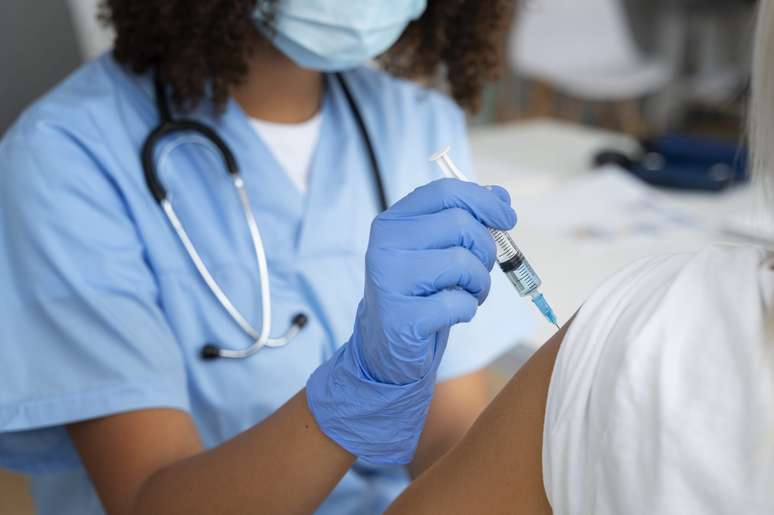Child protection begins with the pregnant woman
With a 52% increase in RSV cases in children, experts emphasize that maternal immunization is an essential strategy to prevent respiratory complications
Respiratory syncytial virus, known as RSV, saw a 52% increase in cases among children in 2025, raising an alarm for parents and healthcare workers. Pediatrician Vanessa Tirloni explains that the virus is the main cause of bronchiolitis. This is a respiratory infection that can quickly lead to hospitalization in young children.
“Children’s immune systems are still developing and RSV can cause breathing difficulties, high fever and, in some cases, serious complications requiring hospitalization. The arrival of the vaccine for pregnant women in SUS in November is a great achievement for public health. This vaccine stimulates the production of antibodies in the mother’s body, which are transmitted to the baby through the placenta,” says Vanessa.
Immunization requires care
Pregnant women must apply the vaccine between the 28th and 36th week of pregnancy and its effectiveness is maintained only when the interval between application and the birth of the baby exceeds 14 days.
The specialist emphasizes that maternal vaccination will be the most effective form of prevention available at this time in the SUS. “Like other vaccines recommended during pregnancy, immunization against RSV protects the baby individually and helps reduce the circulation of the virus in the community. This prevents epidemics and hospital admissions,” he explains.
Care that remains essential in everyday life
Vanessa Tirloni warns that ongoing care remains essential, even with vaccinations available. “Hand hygiene, avoiding contact with people with a cold and maintaining ventilated environments continue to be important measures, especially in the first months of the child’s life.”
He also underlines that in the private network there already exists a vaccine for direct prevention in newborns, the monoclonal antibody Nirsevimab (Beyfortus®). “The Brazilian Society of Pediatrics and the Brazilian Society of Immunization recommend that all children, regardless of gestational age, receive the vaccine when mothers have not been vaccinated or received the dose less than 14 days before birth.
As RSV increases, maintaining medical monitoring of pregnant women and taking preventive measures are essential for the health and safety of little ones. “Protection is synonymous with care. The vaccine for pregnant women comes to offer more peace of mind to families and significantly reduce serious cases of bronchiolitis in newborns”, concludes Vanessa.
Source: Terra
Ben Stock is a lifestyle journalist and author at Gossipify. He writes about topics such as health, wellness, travel, food and home decor. He provides practical advice and inspiration to improve well-being, keeps readers up to date with latest lifestyle news and trends, known for his engaging writing style, in-depth analysis and unique perspectives.








